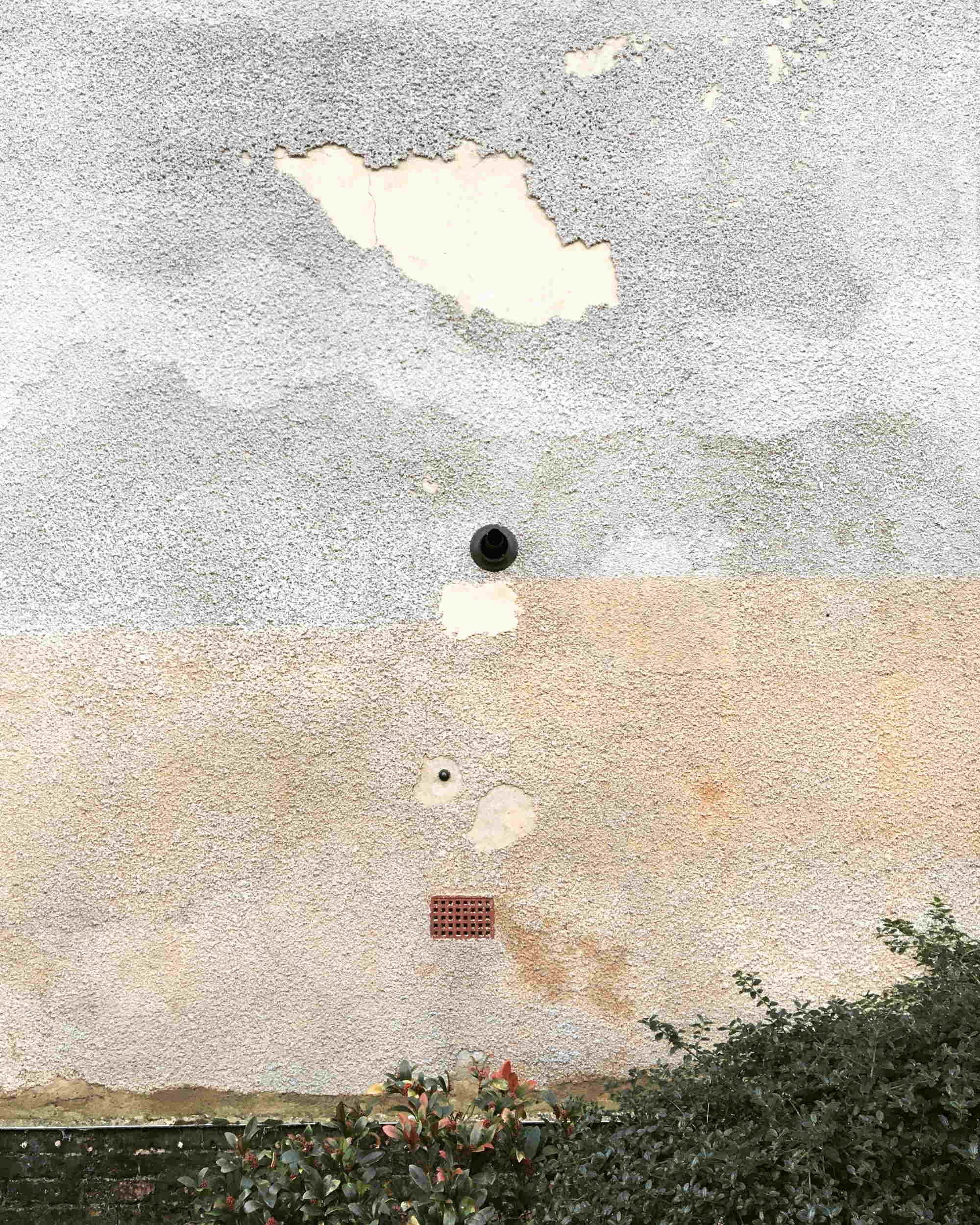Hidden in plain sight
“The relation between what we see and what we know is never settled. Each evening we see the sun set. We know that the earth is turning away from it. Yet the knowledge, the explanation, never quite fits the sight.”
Day after day, I walk down to the sea past this wall without my ever noticing it, until one particular morning. Was it that the light was different? Or my state of mind? I don’t know what changed, but suddenly the beauty of the wall was apparent.
It’s just an ordinary wall, on an ordinary street. Worse, a wall in need of repair. The render is coming off, and the paint faded. So how did its beauty suddenly appear? And how had I not noticed it before? Had it been there all along, hidden in plain sight?
Hidden in plain sight. I love this idiom. Something is concealed and therefore unseen, despite all along being fully visible.
Leonard Koren talks of the wabi-sabi state of mind as being one that ‘coaxes beauty out of ugliness’. And this experience of transformation is at the heart of the wabi-sabi aesthetic. For me, as a dharma practitioner, it’s become a metaphor for insight.
The Reality that the Buddha woke up to had been there all along, ‘hidden in plain sight’, until that night, under the Bodhi tree. In the moment of awakening, his mind becomes completely clear, a sparkling awareness, and what had been hidden, is revealed.
If you’ve spent any time taking photographs, you’ll know the importance of light. The right light can coax beauty out of the most ordinary of things. It’s the same with the mind, the light of clear awareness coaxes beauty and truth from the mundane.
Buddha Dharma lives in the midst of delusion and springs forth from it. - Dogen
It’s just before dawn on the night of his Enlightenment when the Buddha sees the morning star, and for him, it’s the moment when everything becomes clear. His story goes on. After his awakening, the Buddha, though he longs to share what he’s discovered with others, hesitates. How can he possibly communicate what he’s seen? It seems inconceivable.
When I first read about this episode in the Buddha’s life, I assumed his experience was so ‘out there’, so vastly different from the unawakened state, as to be impossible to describe. But what if the opposite is true?
Does it seem impossible to him because it’s so close to his unawakened state? What if the reality he discovers is something that has, in a sense, been there all along, right under his nose, yet not recognised? Hidden in plain sight.
I find myself drawn to this idea of a ‘modest awakening’. Andrew Olendzki, a scholar of early Buddhism, coined the term, he says;
What if the nirvana experienced by the Buddha in Bodhgaya turns out to be something considerably less magnificent than that of later mythic tradition, yet at the same time, by virtue of its being actually attainable by ordinary folk, something of unparalleled value?… The awakened one as one who experiences an unshakable sense of well-being in the face of any and all conditions.
Yet surely the experience of awakening must be momentous, I mean, why all the fuss if the awakened state is so close to our everyday experience?
Here is the conundrum: can a subtle change be earth-shattering?
Think about this in relation to your own life. No doubt there have been significant realisations over the years which have resulted in pivotal shifts for you. Yet I wouldn’t mind betting that what you realised in those moments was not something extraordinary, but something you already knew somewhere in your being, but had kept hidden from yourself.
Awakening can be both modest and momentous. It can and will alter us completely, yet at the same time, everything will be as it has always been.
It’s like the wall on my road. That morning it was changed utterly. There was a total transformation. And yet it was the same wall.
Make a practice of noticing these moments of transformation. The sudden beauty of the morning light flickering on your bedroom wall. Bird song, so exquisite that you understand the expression ‘to sing your heart out’.
There’s so much beauty all around us, hidden in plain sight. When it suddenly appears, take it as a sign to stop, to stop and wonder for a moment before continuing with your extraordinary, ordinary life.

